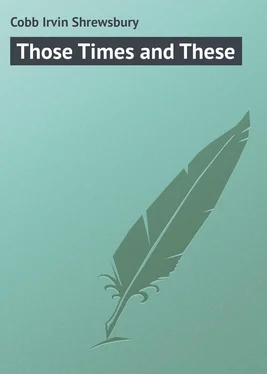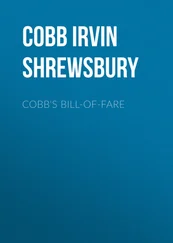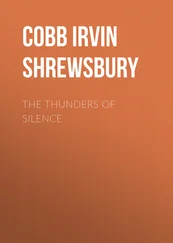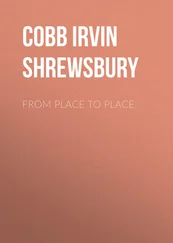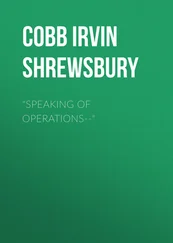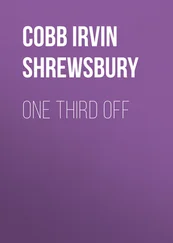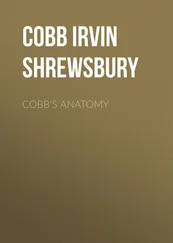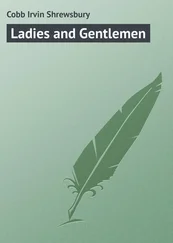Irvin Cobb - Those Times and These
Здесь есть возможность читать онлайн «Irvin Cobb - Those Times and These» — ознакомительный отрывок электронной книги совершенно бесплатно, а после прочтения отрывка купить полную версию. В некоторых случаях можно слушать аудио, скачать через торрент в формате fb2 и присутствует краткое содержание. Жанр: foreign_prose, на английском языке. Описание произведения, (предисловие) а так же отзывы посетителей доступны на портале библиотеки ЛибКат.
- Название:Those Times and These
- Автор:
- Жанр:
- Год:неизвестен
- ISBN:нет данных
- Рейтинг книги:4 / 5. Голосов: 1
-
Избранное:Добавить в избранное
- Отзывы:
-
Ваша оценка:
- 80
- 1
- 2
- 3
- 4
- 5
Those Times and These: краткое содержание, описание и аннотация
Предлагаем к чтению аннотацию, описание, краткое содержание или предисловие (зависит от того, что написал сам автор книги «Those Times and These»). Если вы не нашли необходимую информацию о книге — напишите в комментариях, мы постараемся отыскать её.
Those Times and These — читать онлайн ознакомительный отрывок
Ниже представлен текст книги, разбитый по страницам. Система сохранения места последней прочитанной страницы, позволяет с удобством читать онлайн бесплатно книгу «Those Times and These», без необходимости каждый раз заново искать на чём Вы остановились. Поставьте закладку, и сможете в любой момент перейти на страницу, на которой закончили чтение.
Интервал:
Закладка:
“And, at that, the other man faced about and looked full into his first sunset. Instantly his whole mood changed. It became rapt, reverential – you might say worshipful. His lips moved, but no words came from them at first, and he made as though to shut out the sight with his hands, as though the beauty of the vision was too great for him to endure. I went to him and put my hand on his shoulder. He was quivering from head to foot in an ague of sheer happiness. He seemed hardly to know I was there. He did not look toward me. He kept his eyes fixed upon the West as if he were greedy to miss nothing of the spectacle.
“Until now the sunset had seemed to me less beautiful by far than many another summer sunset I had seen, for the sky was rather overcast and the colours not particularly vivid; but, standing there beside him, in physical contact with him, I caught from him something of what he felt, and I saw that glow in the west as some-thing of indescribable grandeur and unutterable splendour, a miracle too glorious for words to describe or painters to reproduce upon squares of canvas.
“Presently he spoke to me, still without turning his head in my direction.
“‘How often does this – this – come to pass?’ he asked, panting the words out.
“‘Many times a year,’ I told him. ‘At this season nearly every evening.’
“‘And is it ever so beautiful as this?’ he said.
“‘Often more beautiful,’ I said. ‘Often the colours are richer and deeper.’
“‘Why are there not more of us here to look upon it?’ he asked. ‘Surely at this hour all mankind must cease from its tasks – from whatever it is doing – to see this miracle – this free gift of the Creator!’
“I tried to tell him that mankind had grown accustomed to the daily repetition of the sunset, but he seemed unable to comprehend. As the last flattened ray of sunshine faded upon the grass, and the afterglow began to spread across the heavens, I thought he was about to faint; and I put both my arms round him to steady him. But he did not faint, though he trembled all over and took his breath into his lungs in great sobbing gulps. I showed him the evening star where it shone in the sky, and he watched it brighten, saying nothing at all.
“Suddenly he turned to me and said:
“‘At last I have lived, and I have found that life is sweet. Life is sweeter than I ever dared to hope it might be.’
“Then he said:
“‘I have a home. Will you show me where it is? While I was blind I could feel my way to it; but, now that I can see, I feel lost – all things are so changed to me. Please lead me there – I want to see with my own eyes what a home is like.’
“So I took his hand in mine and we went toward it, and the three others who were there followed after us.
“Madam, his home – the only home he had, for so far as we knew, he had no living kinspeople – was a room in that big barn of an asylum. I led him to the door of it. It was a barren enough room – you know how these institutions are apt to be furnished, and this room was no exception to the rule. Bare walls, a bare floor, bare uncurtained windows, a bed, a chair or two, a bare table – a sort of hygienic and sanitary brutality governed all its appointments.
“I imagine the lowest servant in your employ has a more attractively furnished room than this was. Now, though, it was flooded with the afterglow, which poured in at the windows; that soft light alone redeemed its hideousness of outline and its poverty of furnishings.
“He halted at the threshold. We know what home means to most of us. How much must it have meant, then, to him! He could see the walls closing round to encompass him in their friendly companionship; he could see the roof coming down to protect him.
“‘Home!’ he said to himself in a half whisper, under his breath. ‘What a beautiful word home is! And what a beautiful place my home is!’
“Nobody gave the signal, none of us made the suggestion by word or gesture; but with one accord we four, governed by the same impulse, left him and went away. We felt in an inarticulate way that he was entitled to be alone; that no curious eye had any right to study his emotions in this supreme moment.
“In an hour we went back. He was lying where he had fallen – across the threshold of his room. On his face was a beatific peace, a content unutterable – and he was dead. Joy I think had burst his heart. That bit of plaster you hold in your hand is his death mask.”
The doctor finished his tale. He bent forward in his chair to see the look upon his caller’s face. She stood up; and she was a creature transformed and radiant!
“Doctor,” she said – and even her voice was altered – “I am going home – home to my husband and my children and my friends. I believe I have found a cure for my – my trouble. Rather, you have found it for me here to-day. You have taught me a lesson. You have made me see things I could not see before – hear things I could not hear before. For I have been blind and deaf, as blind and as deaf as this man was – yes, blinder than he ever was. But now” – she cried out the words in a burst of revelation – “but now – why, doctor, I have everything to live for – haven’t I?”
“Yes, madam,” he said gravely; “you have everything to live for. If only we knew it, if only we could realise it, all of us in this world have everything to live for.”
She nodded, smiling across the table at him. “Doctor,” she said, “I do not believe I shall ever come back here to see you – as a patient of yours.”
“No,” he affirmed; “I do not believe you will ever come back – as a patient of mine.”
“But, if I may, I should like to come sometimes, just to look at that face – that dead face with its living message for me.”
“Madam,” he told her, “you may have it on two conditions – namely, that you keep it in your own room, and that you do not tell its story – the story I have just told you – to any other person. I have reasons of my own for making those conditions.”
“In my own room is exactly where I would keep it,” she said. “I promise to do as you ask. I shall never part with it. But how can you part with it?”
“Oh, I think I know where I can get another copy,” he said, “The original mould has not been destroyed. I am sure my – my friend – has it. This one will be delivered at your home before night. My servant shall take it to you.”
“No,” she said. “If you do not mind, I shall take it with me now – in my own hands.”
She clasped the gift to her breast, holding it there as though it were a priceless thing – too priceless to be intrusted to the keeping of any other than its possessor.
For perhaps five minutes after the departure of his recent patient the great specialist sat at his desk smiling gently to himself. Then he touched with his forefinger a button under the desk. His manservant entered.
“You have heard of troubles being started by a lie, haven’t you?” asked the doctor abruptly.
“Yes, sir – I think so, sir.”
The man was not an Englishman, but he had been trained in the school of English servants. His voice betrayed no surprise.
“Well, did you ever hear of troubles being ended by a lie?”
“Really, sir, I can’t say, sir – offhand.”
“Well, it can be done,” said the doctor; “in fact, it has been done.”
The man stood a moment.
“Was that all, sir?”
“No; not quite,” said the master. “Do you remember an Italian pedlar who was here the other day?”
“An Italian pedlar, sir?”
“Yes; don’t you remember? A street vender who passed the door. I called him in and bought a plaster cast from him – for seventy-five cents, as I recall.”
Читать дальшеИнтервал:
Закладка:
Похожие книги на «Those Times and These»
Представляем Вашему вниманию похожие книги на «Those Times and These» списком для выбора. Мы отобрали схожую по названию и смыслу литературу в надежде предоставить читателям больше вариантов отыскать новые, интересные, ещё непрочитанные произведения.
Обсуждение, отзывы о книге «Those Times and These» и просто собственные мнения читателей. Оставьте ваши комментарии, напишите, что Вы думаете о произведении, его смысле или главных героях. Укажите что конкретно понравилось, а что нет, и почему Вы так считаете.
